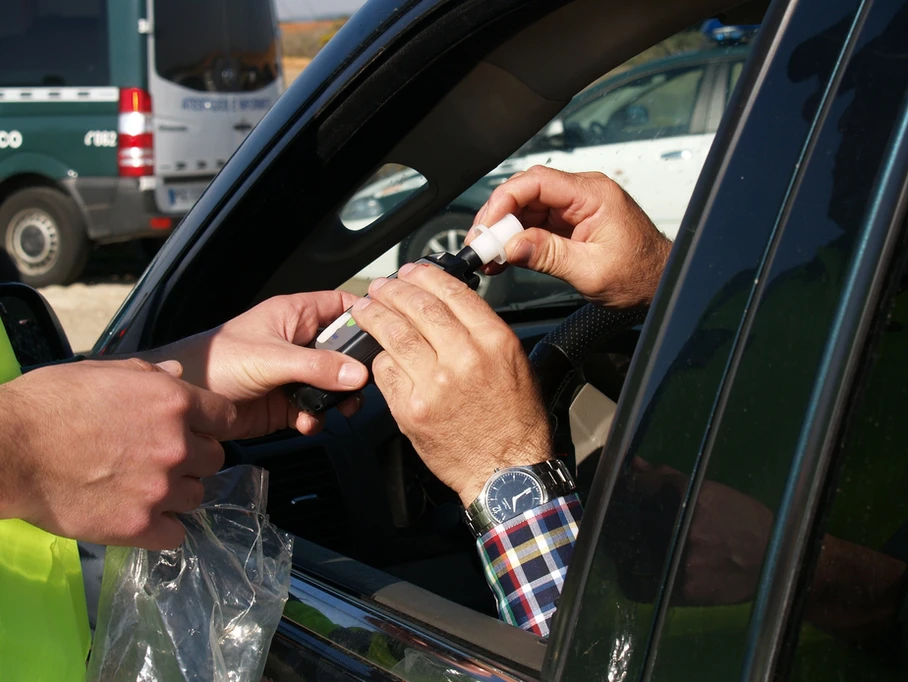If you’re a Michigan resident facing a DUI charge, it’s essential to understand the breathalyzer test and the legal process surrounding it. As an experienced DUI criminal defense attorney specializing in DUI criminal defense, I’ve encountered many clients who are unsure about what to do when facing a breathalyzer test.
In this blog post, I’ll help you understand the ins and outs of how a breathalyzer test works, the difference between the two most common forms of breathalyzers, and answer the popular question, “What happens if you refuse a breathalyzer test in Michigan?” I’ll also explain the typical legal process of what happens if someone either accepts or refuses to take the test, and what your rights are in both circumstances.

What is a Preliminary Breath Test and How do They Work?
When you’re stopped under suspicion of drunk driving in Michigan, an officer will ask you to perform a preliminary breath test (PBT). This Michigan DUI blood test or breathalyzer test measures your blood alcohol content (BAC) through a sample of your breath to determine whether you are legally impaired.
The reason police officers ask people they suspect of driving while intoxicated to complete a PBT is that this test helps to corroborate their suspicions.
Can I Refuse to Take a Breathalyzer Test?
So, can you refuse blood test for DUI? Technically? Yes.
Refusing to take a breathalyzer test is not a crime in the state of Michigan, and you are free to decline politely.
But should you? Probably not.
In Michigan, similar to many other states, there is an “implied consent” law. This means by driving a vehicle, you automatically consent to chemical testing (like a breathalyzer) if you are lawfully arrested for suspicion of drunk driving. Therefore, if you refuse to take a breathalyzer (either after being pulled over or later at the police station), you will automatically incur penalties. These range in severity, dependent on your situation. But, especially if you are later found guilty of a DUI/OWI, the consequences of refusal are much more severe than failing it.
What Are The Penalties For Refusing To Take A Breathalyzer Test In Michigan?
To fully understand the potential penalties of refusal, it’s important to first understand the difference between the two kinds of breathalyzers: The Preliminary Breath Test and the DataMaster Breathalyzer test administered at the police station. The best DUI lawyer in Michigan, Mark Caldwell, explains the basics in this video with additional details found below:
Preliminary Breath Test (PBT): This is also known as the roadside breathalyzer and is the kind that police request after stopping someone they suspect of being under the influence.
PBT Penalties: Michigan considers the refusal to take a PBT to be a civil offense, carrying the following consequences:
- You will be fined up to $150.
- You may have your driver’s license suspended for up to two years.
- You may have six points added to your license.
DataMaster Breathalyzer Test: This is the test administered at a police station. The DataMaster Transportable (DMT) breath test is typically much more accurate than the PBT. Penalties for refusal include:
- You will have your driver’s license suspended for at least a year.
- You will have six points added to your record.
- You may be charged with a separate misdemeanor.
- By refusing a breathalyzer at the station, officers have grounds to acquire a warrant to force you to take a blood test. Blood tests are much more accurate than breath tests, increasing the likelihood of determining if your BAC (Blood Alcohol Content) is above the Michigan legal limit of 0.8% and/or if you were driving under the influence of other substances such as marijuana.
If you take the blood test and your BAC is proven to be 0.08% or higher, it is now considered a crime, and you will be charged with Operating While Intoxicated (OWI). The 0.08% applies to drivers over the age of 21. For underage drivers, ANY detectable amount of alcohol is grounds for an OWI charge.
Moreover, if an individual is found guilty of driving with a BAC more than twice Michigan’s legal limit of 0.08%, enhanced penalties may be applied. These “super drunk” laws can lead to more severe consequences.
DUI defense attorney fees can vary widely depending on the complexity of your case, the lawyer’s experience, and the location of your court proceedings. Want to learn more about Michigan DUI/OWI offense penalties? Find your answers here.

Know your Legal Rights!
If you’re stopped for a DUI or OWI in Michigan, you have legal rights. You have the right to remain silent, and you don’t have to answer any questions without an attorney present. You also have the right to have an attorney present during any police questioning. It’s essential to remember that if you’re taken to the police station, any statements you make can be used against you in court.
The best thing you can do to protect your rights is to find an experienced Michigan lawyer to guide you through the legal process and fight for you. Your lawyer can negotiate with prosecutors to reduce charges or have them dismissed. You have a right to a trial by jury, and an experienced attorney can help prepare a defense that may result in reasonable doubt of your guilt.
Conclusion:
Being pulled over for DUI in Michigan can be a scary experience. If you take a breathalyzer test and receive positive results, you can face criminal charges. But refusing to take the preliminary test and then later receiving positive results from another method will result in even more severe DUI criminal charges!
In conclusion, if you’re pulled over, be polite, but don’t answer any questions without an attorney present. If you do take a breathalyzer test, and it’s positive, remember that a Michigan DUI lawyer can help you fight the charges. If you’re wondering what happens if you refuse a breathalyzer test in Michigan, know that it can result in automatic license suspension and other penalties. Always remember that you have legal rights and that an experienced attorney can help you ensure they’re protected throughout the legal process.
Take the next step by scheduling your free consultation with the best DUI lawyer in Michigan today. There is always a path forward, and attorney Mark Caldwell is here to guide you to the most successful outcome.
Call Mark Caldwell today at (616) 915-6576 or email at mark@markmcaldwell.com.



